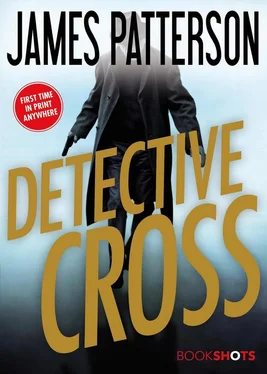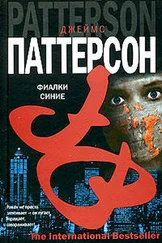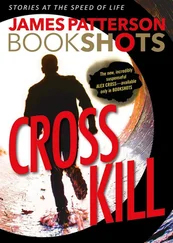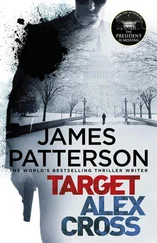He stopped at the thick, solid steel barrier, which came up to the bottom of the vest, and stood there squinting as the cameras and lights came within yards and formed in a ragged semicircle facing him. Kate climbed from the bus and stood by me.
“You should get out of here,” I said.
“No,” she said. “It’s all right.”
One of the journalists shouted, “Who are you?”
“What do you want to tell the senators?” another cried.
We watched silently, transfixed. Mickey put one hand on the bomb vest and showed them the cell phone with the other.
“My name is Michael Hawkes,” he said in a wavering, emotional voice. “I am seventeen years old. When I was eight, my father, my hero and my best friend, was blown up by an IED on his ride back to Kabul to muster out of the Special Forces for good.”
“Shit,” Kate said under her breath.
“Maybe he should have died,” Mickey went on. “Most of the time he says he should have. He lost both legs and an arm, and suffered a closed head injury. When I went with my mother to see him at the hospital in Germany, he wouldn’t let me into his room.”
His shoulders heaved, and I knew he was crying. “My dad said to forget him. He told my mom the same thing. But I wouldn’t forget my dad. No matter how many times he swore at me, no matter how many times he told me to never come back, I went to see him in every hospital he’s lived in since the explosion.”
Mickey paused, and looked around at Officer Larson, who had lowered her gun.
He glanced over at us. I nodded. Kate said, “Keep going. You’re doing fine.”
Mickey turned back to the cameras, and said, “I finally started to get through to my dad two years ago. There are daily support group meetings for IED survivors and their families at Veterans Affairs Medical Center. I go every day I can because I want to be there for my father, and because it’s the only way I really get to see him when he doesn’t get angry, and it’s the only way he stays sane, and...”
His voice cracked as he said, “If I don’t...”
Mickey looked at the sky, coughed, and cleared his throat before pointing toward the Senate.
“The politicians in there owe my dad,” he said. “They made a promise that if he risked his life for his nation, his nation would stand by him. They made a promise that his nation would not forget him, that his grateful nation would help and provide for him.”
Mickey took a deep breath, and said, “But those senators in there aren’t standing by their promises, and they’re not standing by my father. They’ve forgotten him, and every other vet. They’ve forgotten to be grateful to those who served. If they don’t pass this bill tonight, the funding for veterans stops. The VA hospitals shut down. The programs halt. The help my dad needs is gone. The help every wounded warrior in the country needs is gone. And I... I can’t let that happen.”
He paused and then said in a strong voice, “Pass the bill, senators, or I’ll blow myself up, and the blood’s on your hands.”
The rain picked up. So did the wind. And so did the pressure on Mickey Hawkes to give up his demands and surrender.
But Mickey stood resolute at the gate, holding his cell phone and staring beyond the cameras at the lights burning over the steps of the Senate. I didn’t like his tactics a bit, and yet the more I watched him, the more I admired his guts and conviction.
Bree arrived ten minutes into the standoff, Ned Mahoney a few minutes later. She’d watched Mickey’s speech streaming on her phone, and told us the cable news networks were going crazy with the story. It was irresistible, a David versus Goliath showdown, the teen versus Congress.
“What can we do?” she asked, peeking around me to look at Mickey.
“We can wait him out,” I said. “There’s been no vote yet.”
Mickey’s mother, Deborah Hawkes, a disheveled-looking woman in her early forties, arrived on the scene shortly after nine, climbing from a patrol car that had been dispatched to her apartment blocks away. She appeared not only frantic, but possibly drunk.
“Mick!” she yelled when Ned Mahoney led her up alongside the bus. “Oh, my God! What the hell do you think you’re doing?”
He ignored her.
“Mickey!” she shouted. “You answer me, now.”
The teen never turned toward her. “I’m doing what you wouldn’t, Ma. I’m helping Dad, and every vet like him.”
She started to sob quietly. “He left me,” she said. “He left you, too.”
“I wouldn’t let him leave me,” Mickey said. “That’s the difference between us.”
The cameras caught all of it. According to the live updates Bree was watching, the phones in senators’ offices were ringing off the hook with calls from vets and families, urging them to pass the bill.
Apparently, Mickey’s threat was echoing in the Senate. For supporters of the bill, he was the dramatic proof they needed to argue that lack of support for veterans had gone too far.
The senators opposed to passage called Mickey a terrorist and a blackmailer.
“They do this after every big war, you know,” Mickey shouted at the cameras around 10 p.m. “Congress gets all gung ho to spend to fight. But when it’s time to take care of the vets, they claim poverty because of how much they spent on the war. It happened after the Revolutionary War, the Civil War, World War I, and World War II.
“The Vietnam vets? They got screwed, too. So did the ones who fought in Desert Storm. And now it’s happening all over again for the soldiers who served in Iraq and Afghanistan. When is this going to stop? When are they going to fulfill their promises?”
A cheer went up from behind the bus, back out on Northeast Drive where a crowd — many of them veterans, it seemed — had gathered to lend Mickey support.
At 10:20, we heard that debate over the veterans’ bill had been closed. An up or down vote was underway. Fifteen minutes after that, with the ongoing vote leaning 44–40 against passage, a panel van parked on Northeast Drive. Thomas Hawkes rolled out the back in a motorized wheelchair.
Officer Larson led him around the security bunker, lowered the steel barrier, and let Hawkes wheel toward his son.
“Jesus, Mickey,” Hawkes said. “You sure know how to cause a shit storm.”
Mickey smiled, but his jaw was trembling. “I learned from the best.”
“No, son, I think you’ve got me beat by a long shot.”
Mickey didn’t reply.
“You gonna blow yourself up?”
A long moment passed before Mickey answered, “If I have to.”
Hawkes looked pained and used his remaining arm to bring his wheelchair closer.
“I don’t want you to,” he said, quiet but forceful. “I want you to stay in this world. And... I’m sorry for all the times I pushed you away. I need you, Mick.”
Mickey started crying again, but stood still.
“You hear me?” his father said. “The whole goddamned world needs men like you, willing to take a stand. A warrior if there ever was one.”
Back by the road, claps and whistles of approval went up from the crowd, many of whom were also watching live updates on their smartphones.
Mickey wiped at his tears, and looked over his shoulder at Kate Williams, who shook her head ever so slightly.
“Give up, Mick,” his mother called. “I promise, I’ll be better. We’ll be better.”
“Listen to her,” Hawkes said. “We both need you in our lives. And we both can change things, if you’ll just—”
Suddenly a shout rang out from one of the broadcast journalists. “Passed! It passed by two votes!”
“You did it, Mickey!”
The kid hung his head and leaned on the barrier, sobbing. His father wheeled toward him while his mother tried to get around Mahoney, who held her back.
Читать дальше












